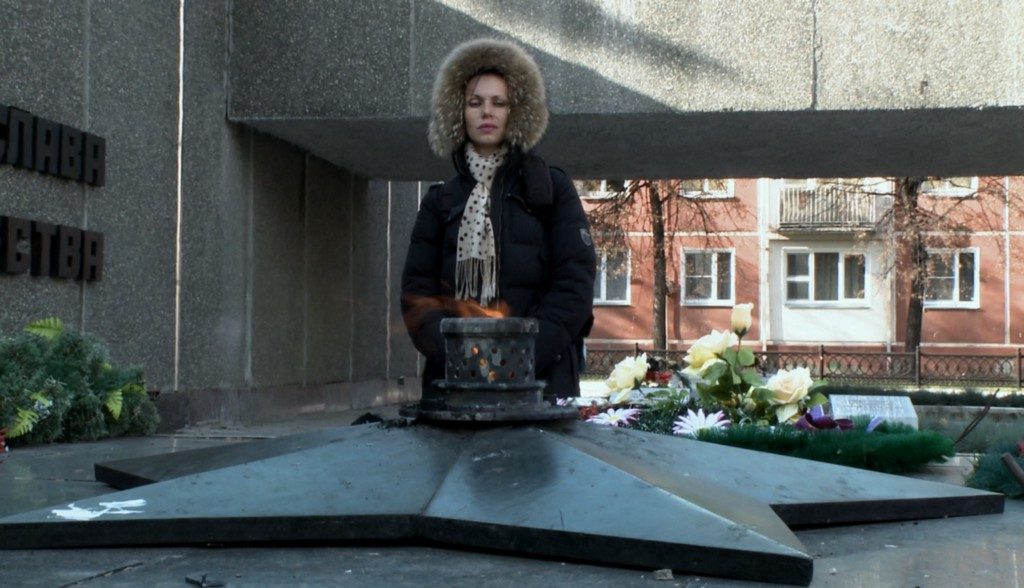Samira Goetschel is an Iranian-born American award-winning filmmaker based in Los Angeles. An alumnus of NYU Film School, her graduating film, “Clown de la Vie,” won Best Short Film at the New York State Film Festival, and was a finalist at the Student Academy Awards. Her first documentary, “Our Own Private Bin Laden,” was named Best Foreign Documentary and Best Film of the Festival at the 2006 European Independent Film Festival in Paris, and won the Audience Award at the International Film Festival in Seoul. She founded D.I.G. Films in 2013. (Press materials)
“City 40” will premiere at the 2016 Hot Docs Film Festival on April 28.
W&H: Describe the film for us in your own words.
SG: Tucked away deep in the heart of Russia, there is a hidden city where thousands of men, women, and children live and work behind barbed-wire fences monitored by armed guards. The residents are told they are the nuclear shield and saviors of the world. They are told that everyone on the outside is the enemy. One of the most contaminated places on earth, and home to Russia’s largest stockpile of fissile materials, this place is called City 40.
The film crew gets smuggled inside City 40 and — behind a psychological façade of normality — they encounter a single mother and a handful of brave residents who risk their lives to expose human and environmental catastrophes that threaten the world.
W&H: What drew you to this story?
SG: I start my films with a question and the question takes me on a journey that evolves and subsequently leads me to the story.
W&H: What do you want people to think about when they are leaving the theater?
SG: I think films can be most effective when they create a political space for critical engagement. I hope my film offers the audience that space where they can exercise their own critical thinking.
W&H: What was the biggest challenge in making the film?
SG: Getting through people’s invisible psychological fences that seemed stronger than the physical barbed wire fences surrounding their forbidden city.
W&H: How did you get your film funded? Share some insights into how you got the film made.
SG: I self-funded the film because making the film in a Russian nuclear closed city with outside financing would have been impossible.
W&H: What’s the biggest misconception about you and your work?
SG: Some have wrongly suggested that I am not who I claim to be.
W&H: What’s the best and worst advice you’ve received?
SG: The best advice: You can never make this film on your own.
The worst advice: You can never make this film on your own.
W&H: What advice do you have for other female directors?
SG: Turn all the “No” responses you get into fuel to push forward. There is no better ally than rejection to get things done.
W&H: Name your favorite woman-directed film and why.
SG: “The House Is Black” (1962), a masterpiece of political cinema by Forough Farrokhzad (1935–1967) that looks at life and suffering in a leper colony in Iran while at the same time is a metaphor on human condition.
Forough is arguably one of the most influential and controversial Iranian poets and filmmakers of the 20th century. Living in a repressive regime and a patriarchal society, she rebelled against and went beyond restrictive social and political norms.
In her only documentary, “The House is Black,” although the subject of leprosy is one that would seem to be remote from our everyday concerns, Forough is able to present this dire subject matter as one of common — indeed, universal — concern.
“The House is Black” first concerns the immediate and concrete condition of the lepers in the leper colony, their circumstance of social neglect and misery.
The second level or theme concerns how we, the audience, understand and respond to what we encounter in the world.
And on the third level there is the despondent idea of leprosy as a general metaphor for the dire social and political condition in Iran and people’s misery under a corrupt totalitarian regime.







